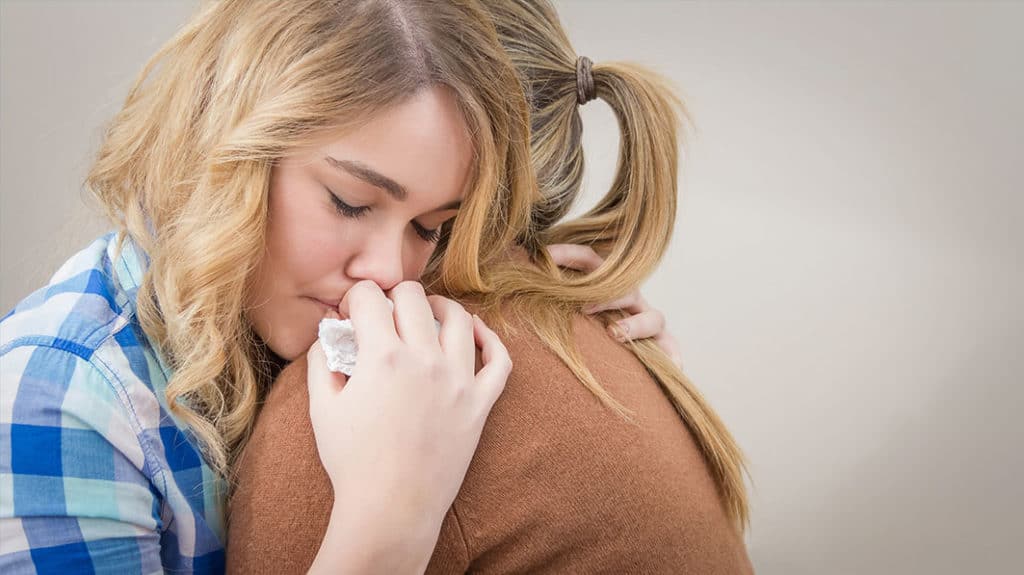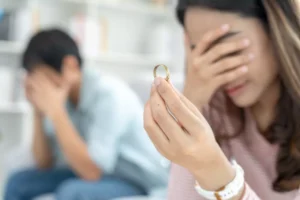My eyes were scratchy-tired, and I couldn’t stop yawning. Why had I volunteered to take my girls to a midnight movie?
“I can drive them since I’ll be in the theater next door,” my 18-year old son offered as we scraped dinner scraps into the trash. It was a tempting offer, but something in my spirit said, Just go with your girls. So I did.
The movie ran for about 30 minutes when, to my annoyance, a popping sound interrupted it. It was followed by a sizzling noise and a trail of smoke. The scent of buttered popcorn gave way to a chemical smell. Then more loud pops and flashes in the dark. Firecrackers?
The theater filled with shrieks and cries of pain, but I heard my girls’ voices above the others.
Michelle shouted, “What’s happening?”
“What’s going on, Mom?” cried Elizabeth.
And then I knew. Gunshots. They were rapid and nonstop, and all around me were the sounds of terrified and dying people. The sounds of a massacre.
“Get down!!” Michelle and I shouted in unison. I yanked Elizabeth down, and we dropped to our stomachs, trembling, with our faces pressed into dirty carpet.
Then I realized Elizabeth was on the end of the aisle. If the shooter moved closer, she would be at risk. I threw my body over hers, praying it would be enough of a barrier to save her life.
Out of the fire
On July 20, 2012, a gunman entered the Aurora Century 16 Movie Plaza and killed 12 people, wounding 70 others. My daughters and I survived with no physical injuries, but a young woman sitting next to Michelle died, as did my daughters’ childhood.
The sense of safety that loving families provide to kids can be robbed by man-made tragedies, such as shootings, bombings, abuse or molestation. Even robberies, bullying, alcohol abuse, bad car accidents or drug-related crimes may cause children to question whether any place is safe.
My husband, Scott, and I didn’t want the experience in the theater to permanently cripple our girls’ sense of security. Shortly after the incident, our journey to rest in God’s peace began. Here are a few ways that helped us move closer to God and to each other — and away from the fear that constantly threatened our family.
Individually together
If one member suffers, all suffer together. (1 Corinthians 12:26)
Although grief-stricken ourselves, Scott and I had a strong faith in Christ, which helped us through each step of our journey. Our immediate concern, though, was processing the shock and tragedy of the event with our children.
That first night, most of us huddled together in the living room. We didn’t sleep; we talked, we listened to the news, we held each other.
Over the following days, we realized Michelle and Elizabeth had completely different ways of processing the tragedy. We gave them the space they needed. Each had to heal independently, even as we needed to heal together.
Michelle remained glued to the news, wanting to gather every bit of information she could about the shooter, his family and the events of that night. She felt the whole world had been turned upside down, and no one and no place was safe. To process, she needed to talk through the stark reality of the tragedy.
We all heard the voices of culture asking how God could be good when He allowed things like this to happen. So we talked about man’s free will and how this was a horrific act done by man, not God. Michelle recently told me that knowing this was a great comfort to her. She said, “It gave me something to hold on to.”
Elizabeth, on the other hand, avoided the news and all discussion of the incident. As a 14-year-old who was transitioning from home schooling to a large public school, she got through by being allowed to fall apart without judgment.
In her new school, fights broke out and lockdowns occurred, which caused her to break down emotionally. Fire drills reminded her of the screeching emergency alarms the night of the shooting.
“I was scared,” Elizabeth recalls. “I was allowed to be scared. Without judgment. I was given freedom to not be all together.”
Scott and I vowed to be available, day or night, for our girls, regardless of the inconvenience. Michelle recalls that her dad was a really strong presence — that she knew he would be there to bring home Chipotle, fix something or be a listening ear if she was stressing out. Elizabeth agrees, stating that knowing we would be there for her was invaluable. She recently said that one thing we did that really helped was being told, again and again, “I love you, I believe in you, and you are going to make it through this.”
Those who have
Two are better than one, because they have a good reward for their toil. For if they fall, one will lift up his fellow. (Ecclesiastes 4:9-10)
Help often comes in unexpected ways. Our oldest son, Kyle, who had completed a tour with the U.S. Army in Iraq, had seen death firsthand. He talked in depth with Elizabeth about what to expect emotionally, and she listened because she trusted him.
Kyle told Elizabeth to be prepared for irrational emotions, such as anger, fear or grief, showing up in unexpected places. His insights helped Elizabeth when she found herself in similar situations. She was able to recognize the emotion and react appropriately. Through their talks, my daughter discovered that it helps to have someone who has “been there” to talk with, who comes alongside to say, “You are not alone.”
Relying on good counsel
Where there is no guidance, a people falls, but in an abundance of counselors there is safety. (Proverbs 11:14)
Our family walked away from that night physically unharmed, but our souls were deeply wounded. Scott and I knew that just as a child’s physical injuries sometimes go beyond a parent’s capabilities, emotional injuries can also run so deep that a mom’s or dad’s counsel isn’t enough.
We needed the wisdom of a professional counselor. Local churches and the victim’s advocate office offered options and resources. Our girls chose to see Hannah Morrell, a pastoral, Christian counselor whom my husband and I knew personally.
Michelle and Elizabeth met with her a few times each. Hannah helped the girls better understand how we live in an unsafe world, but God has said that He will never leave us or forsake us. She reinforced that nothing was wrong with any of the emotions they experienced — sadness, fear, depression.
Hannah explained that emotions are given by God as good or bad indicators, with some emotions being a bit like a fever that tells the body something is wrong. The key is to work through the emotions rather than ignore them. They had to work through their immediate emotions — including their anger toward the shooter, and eventually forgiveness — to move forward in the healing process.
Hannah accompanied the girls for emotional support on a walk-through of the theater before renovations began. She says it’s important for people to consider additional counseling in the future, because different seasons in life can retrigger events. Elizabeth was troubled with nightmares and anxiety when the shooter’s criminal trial began three years later, so she sought additional counseling. This time, she met with a counselor who specialized in trauma and who set treatment goals with her.
Working through survivor’s guilt
Look carefully then how you walk, not as unwise but as wise, making the best use of the time, because the days are evil. (Ephesians 5:15-16)
Michelle remembers how difficult it was to accept that she had survived and others hadn’t. “All I could think about was why I didn’t get hurt or die when so many others did, including the woman next to me,” she said.
Trauma experts say it is common to experience guilt or shame for surviving a tragedy. Michelle recalled that the constant verbal reminders from her dad and I that she was loved and had a place on earth with people who cared and needed her helped her move out of that dark place. She said, “I finally accepted that I could continue to question why, or I could recognize I have the potential to make a positive impact with my life, and move forward.”
I, too, struggled with guilty feelings. I had to fall back on the truth that God alone knows the number of my days. I was determined to do my best with the ones He had allowed for me. Together Michelle and I found that when there is no answer to the why, we can turn our focus on making positive use of each today.
The world isn’t safe; evil is real
I have said these things to you, that in me you may have peace. In the world, you will have tribulation. But take heart; I have overcome the world. (John 16:33)
The Aurora shooting taught our children that evil doesn’t occur just on the evening news. At first, life felt precarious, as if we never knew for certain if we’d see each other again.
We each had to wrestle through a new normal. One moment I would be at the grocery store checking out the ripeness of pineapples, and the next moment I would be scanning the aisles, looking for places where I could drop to the floor if necessary. My children did the same wherever they went.
Something as simple as a balloon popping unexpectedly or an acrid smell of smoke could set my heart pounding; I would scan the room for an exit. But we forced ourselves to continue living life. One man would not rob us of our ability to live life. It was a decision that we had to make every time the front door closed behind us.
Eventually the hyper vigilance diminished, but the timing was different for each of us. It took Elizabeth weeks before she was able to sleep alone in her bedroom, and over a year before she could attend a movie in a theater. Michelle and I returned to the theater almost immediately. We felt the need to face our fears, though we remember little about that movie. It was our being there that mattered.
The important thing, we felt, was moving forward, whatever that meant to each one of us. We choose to rest in God’s peace each time fear rears its ugly head. Over time, my girls and I have learned that we may have moments of fear, but it is our choice whether that fear controls our day-to-day activities.
The experiences that form us
Do not be overcome by evil, but overcome evil with good. (Romans 12:21)
All of our kids’ experiences — the good, the bad, the tragic — form them into the adults they will become. Somehow, as time passes, God miraculously works these experiences out for the good of those who love Him (Romans 8:28), and my children are no exception. I’ve already seen God working out good in our lives in specific ways:
First, my girls know beyond a doubt that I’d take a bullet for them. I know it, too.
Second, God is creating in us a hope to help others. Michelle hopes to become a victim’s advocate and help others who have been through traumatic events. Her heart is to serve. I suspect Elizabeth, with her artistic flair and creativity, might one day use those skills to do the same.
My children’s lives are forever changed, but even as they make their choices in the day to day, God is making something of value out of what we experienced. Neither my children nor I have been overcome by the evil we lived through. And my hope is that God, in time, will continue to use us to overcome evil with good.
























